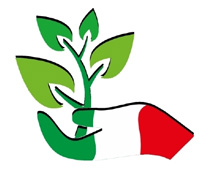
SUSTAINABILITY SPECIAL
The project of CNMI (the National Chamber for Italian Fashion) concerning the Guidelines on ecotoxicological requirements for leather goods, clothing, footwear and accessories, which involve the whole supply chain, has been presented
On 19 April 2016, at the Parliamentary Acts Room of the Library of the Senate of the Italian Republic in Rome, Carlo Capasa – President of the National Chamber for Italian Fashion – reasserted a fundamental and topical concept:
«Today, the challenge for luxury is to manufacture clothes that are not only well-made, but also sustainable»
 A challenge accepted by the Working Group on Sustainability presided over by Carlo Capasa himself, in which many Italian fashion companies are called to actively participate, among which Ermenegildo Zegna, Gianni Versace, Giorgio Armani, Gucci, Loro Piana, OTB, Prada, Salvatore Ferragamo and Valentino. A working group that has the merit not only of presenting and introducing the first real document “Guidelines on ecotoxicological requirements for clothing, leather goods, footwear and accessories”, but also of gathering all industry’s forces in order to really work in synergy. As a matter of fact, also SMI (Italian Fashion System), Federchimica, Health and Textile Association and UNIC – Italian Tanners’ Association participate in this project. It has been defined as an “extraordinary initiative”, aimed at progressively reducing – and, where possible, eliminating – the use of chemicals in the industry, to the benefit of the environment, consumers and collectivity.
A challenge accepted by the Working Group on Sustainability presided over by Carlo Capasa himself, in which many Italian fashion companies are called to actively participate, among which Ermenegildo Zegna, Gianni Versace, Giorgio Armani, Gucci, Loro Piana, OTB, Prada, Salvatore Ferragamo and Valentino. A working group that has the merit not only of presenting and introducing the first real document “Guidelines on ecotoxicological requirements for clothing, leather goods, footwear and accessories”, but also of gathering all industry’s forces in order to really work in synergy. As a matter of fact, also SMI (Italian Fashion System), Federchimica, Health and Textile Association and UNIC – Italian Tanners’ Association participate in this project. It has been defined as an “extraordinary initiative”, aimed at progressively reducing – and, where possible, eliminating – the use of chemicals in the industry, to the benefit of the environment, consumers and collectivity.
The document takes into consideration 350 chemicals, illustrating also the way of use in supply chains and the analysis method in single products. These Guidelines will be subject to periodical revisions and integrations due to progresses in the studies on toxicological risks. The document (available for all enterprises associated with the project’s partners) is only a part of the Italian Fashion’s Sustainability Plan, a process of change towards a more sustainable fashion undertaken by CNMI in 2012 with the publication of the “Sustainability Manifesto”; this process will end in 2020 and already includes other fundamental steps: further guidelines on the chemical mixtures used in manufacturing processes, a study on the use of chemicals in supply chains and the consequent control methods, social responsibility and sustainability measures linked to the sales network and distribution chain. This is how Capasa commented on the work done so far:
«Nowadays, everyone talks about sustainability, but we are the first to put at disposal real and pragmatic measures in order to take action»
Italian institutions, which participated to the presentation, gave their support. If Ivan Scalfarotto – Deputy Minister for Economic Development – reminded that «for the Government, Italian fashion is a major industry that influences the way the world thinks about Italy», Valeria Fedeli – Vice President of the Italian Senate – pointed out the issues that, from her point of view, need to be faced: sustainability, internationalization and mandatory labeling. Carlo Calenda – the Italian Permanent Representative to the European Union – highlighted the importance of sustainability in this way:
«It is right not only from an ethical point of view, but also from an economic one, as it will increasingly be ad added value for the product. It is important that CNMI’s initiative comes before the rules established by the Government, it means that the companies of this industry decided not to back down but to drive change»
Guido Bottini – board member at SMI – pointed out some fundamental points for his association:
«In our industry there are too many working groups dedicated to regulation, a system that creates problems for companies. Institutions should establish only one working group of reference. It is important for us to carefully imagine a circular economy and lead the consumer to ask himself not how much the product costs, but how much is it worth»
Finally, we quote the words of Giovanni Russo – President of UNIC – whose presence at the working group was deemed positive by everyone:
«The tanning world pays a lot of attention to sustainability; think about how, over the years, we have reduced the release of polluting waters by 98%, that of solvents by 48%, and how we have cut emissions. We want to give to the working team a group of tanneries that are able to dialogue with manufacturing brands. If we want to discipline the entire system, it is fundamental to involve the analysis and certification labs in the discussion»



